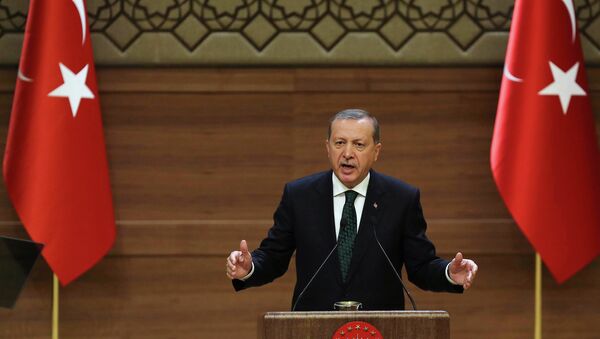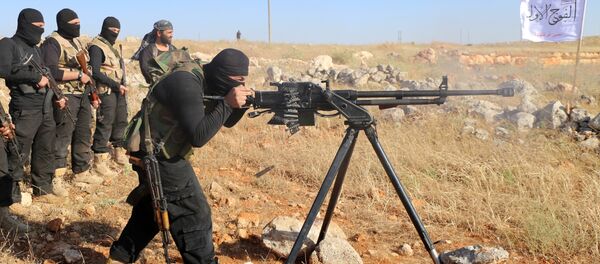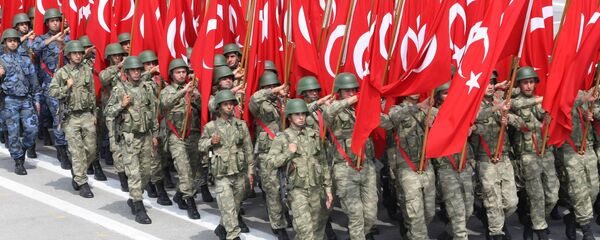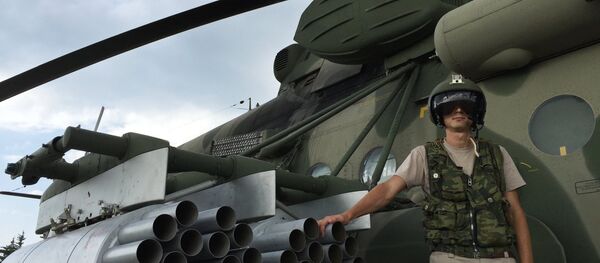By shooting down the Russian Su-24 Turkey has simultaneously shot itself in the foot, French journalist, author and geopolitical analyst Gilbert Mercier notes, referring to the fact that Ankara's irresponsible and dangerous behavior may prompt European NATO members to seek Turkey's exclusion from the Alliance.
"The shooting of the Russian jet fighter by the Turkish air force was, unquestionably, a provocation. So far Russia has shown restraint and has avoided escalation by not retaliating militarily. A Russian military retaliation would have allowed the use of NATO's charter article five, which stipulates that if any member is attacked, all members are obligated to join in," Mercier writes in his article for News Junkie Post.
Needless to say, the prospect of a potential Russo-NATO clash has not been met with enthusiasm in the European capitals.
"Saudi Arabia, Qatar, the Emirates and Turkey became staunch allies to promote, including by force, a Sunni agenda in the region… Regime change in Syria became the top priority on the Sunni axis agenda, mainly to weaken and isolate Shiite Iran," the author explains.
Mercier underscores that there is "countless evidence to establish the direct involvement of Turkey and the Gulf states in the creation of the entity with many names (ISIS, ISIL, Daesh, etc.)."
In addition to its dangerous games with Daesh, Turkey has made a "big geopolitical mistake by opening wide the flow of some of his 2.2 million Syrian refugees to the European Union," according to the author.
Remarkably, amid the ongoing refugee crisis Ankara is using Syrian asylum seekers as a bargain chip to force Brussels to grant Turkey with $3.4 billion in EU aid and visa free access to Europe for its 75-million population. Furthermore, the Europeans agreed to renew talks on joining the European Union. In its turn, Turkey promised to halt the flow of refugees to Europe.
While Turkey was twisting the EU arm and flirting with Daesh, the Russian Air Force and the Syrian Arab Army has been consistently gaining ground in Syria.
"Just like in Crimea, Russia's move in Syria took Washington by surprise. Vladimir Putin estimated that only a military superpower could tip the balance against ISIS [Daesh/ISIL]. His evaluation of the situation in Syria was accurate," Mercier narrates.
"This move, especially the November 13 attacks in Paris, was a game changer in the global narrative. It was primarily a wake-up call for France's President Francois Hollande. An agreement between Russia and France was quickly reached to establish a military collaboration in Syria," Mercier stresses.
It is in the interest of Europe to solve the Syrian crisis and smash Daesh. So far, Mr. Hollande started a diplomatic mission "tout azimuth" to fix "the communication breakdown" between Washington and Moscow.
"At the same time, France's government has convinced Germany to leave the sideline in the Syrian dossier and bring military assistance to the newly formed Russian-French military collaboration. This was a new element, which might partially explain Erdogan's second mistake of shooting the Russian jet," Mercier suggests.
Turkey's brazen provocation has not changed France's firm stance, the author notes. Ankara's unpredictable behavior prompts a lot of questions.
"So far, Turkey's crisis engineering strategy has not worked in favor of the Erdogan administration. Bottom line, if France and Germany would say through their top military brass at NATO: if Turkey stays, we go, it is quite easy to forecast what Washington would have to do," the author stresses.




